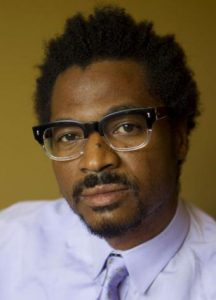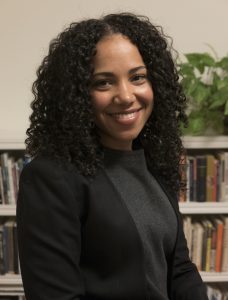University of Illinois, Urbana-Champaign
Wohlers Hall 166
Friday, April 5, 2019, 9:30-5:00
This symposium, sponsored by American Literary History and the Trowbridge Initiative in American Cultures, reassesses genealogies of literary modernity and black writing in the eighteenth and nineteenth centuries. Through a combination of new methodologies and recovered texts, scholarship in African American literary history has exploded many canonical assumptions about who, where, and when African American literature was produced and read. At the same time, new and ongoing work on enslavement, the black Atlantic, science, gender and sexuality, and print culture has pointed to longer, more complex histories of modernity. Speakers examine black reading and writing practices, visual culture, intellectual history, and modernity broadly conceived through abolitionist iconography, transatlantic iterations of the Anglo-African, reprinting, and black taste-making. The symposium features a plenary lecture by Carla Peterson, Professor of English (Emerita), University of Maryland, College Park.
Schedule:
Light Refreshments and Welcome: 9:30-10:00
 Marina Bilbija, (Wesleyan University), 10:00-10:50: “‘Dear Anglo’: Anglo-African World-Making from New York to Lagos (1859-1865)”
Marina Bilbija, (Wesleyan University), 10:00-10:50: “‘Dear Anglo’: Anglo-African World-Making from New York to Lagos (1859-1865)”
This paper examines a tradition of black internationalism routed through print networks and shaped by serial publication cycles. I focus specifically on the deployment of the term “Anglo-African” by black newspapers in the 1860s as an index for deterritorialized black internationalist belonging. Three journals bore this title between 1859 and 1865, two published in New York and one in Lagos. This homonymy was no accident, as the founder of the Lagos Anglo-African, the Jamaican printer Robert Campbell, had been a reader and prolific contributor to the New York papers during his time in the US. If Campbell could transition relatively seamlessly from addressing one Anglo-African public whose epicenter was in New York to another radiating from Lagos, it was because this shared term was rooted less in a place and more in an orientation or identity. I argue that the serial format of the newspaper enabled the production and subsequent refraction of unbounded black internationalist collectivities referred to as “Anglo-African.” Campbell’s New York colleagues had capitalized on the malleability of this term and the affordances of their print medium by serially updating the geographies and referents of their Anglo-African imagined community on a weekly or monthly basis. This serially adjustable Anglo-African print world was then transposed onto the pages of a Lagos publication, where it was once again recalibrated via the combination of local items and US Civil War reports.
 Radiclani Clytus, 11:00-11:50: “‘Ah! But they wear no breeches!’ The Poetic Afterlife of an Image”
Radiclani Clytus, 11:00-11:50: “‘Ah! But they wear no breeches!’ The Poetic Afterlife of an Image”
Josiah Wedgwood’s design for the Society for Effecting the Abolition of the Slave Trade is primarily an artifact of a past politics of inclusion that literally required the posing of the question “Am I Not a Man and a Brother?” for the sake of black enslaved people’s shared claim to humanity. Considering its loin-clothed supplicant and pathetic appeal, it represents a disturbing , antiquated example of how such images can encourage the expansion of social egalitarianism. Yet if we were to extrapolate from the form and content of Wedgwood’s emblem, an even richer legacy of influence emerges across two centuries of black protest. Through an assessment of performative declarations, appeals,
and slogans that amount to a cross-disciplinary continuation of this “Negro Question” in African American creative arts, this paper studies the epistemological continuity that binds our current categorical regard for black humanity with its less than ideal origins.
Lunch Break (12:15-1:45)
 Autumn Womack, (Princeton), 2:00-2:50: “The Reprint Revolution”
Autumn Womack, (Princeton), 2:00-2:50: “The Reprint Revolution”
This talk explores the centrality of reprinting and recovery to African American literary politics and black political life and argues that reprinting constitutes a practice of black modernity. Questions of reprinting are at the heart of African American literary culture and politics—from the poems, novels, and essays regularly reprinted in nineteenth- century black periodicals to the collections of black verse that James Weldon Johnson collected in The Book of American Negro Poetry (1922) to the recovery of black female writers like Zora Neale Hurston in the 1970s. Tracking the various nodal points at which black reprinting was harnessed in the name of political action, I land in the late 1960s. Dubbed by the press as “The Reprint Revolution,” this moment saw major publishers like Arno Press, a subsidiary of the New York Times, returning many so-called lost nineteenth- century African American texts to the public sphere, but also the emergence of small independent black publishing houses. In the shadow of the Civil Rights Legislation and the countless riots in cities across the US, I consider how in 1968 the legacy of black reprinting was reconstituted in the name of political reform, social control, and reconstructing black (literary) history. Throughout I contend that in its capacity to simultaneously hold the old (the original) alongside the new (the reprint), reprinting expresses the temporal complication and historical disruption that scholars argue is at the heart of (black) modernity.
 Plenary Speaker, Carla Peterson, (University of Maryland), 3:00-3:50: “Urbanity and Taste: The Making of African American Modernity in Antebellum New York City”
Plenary Speaker, Carla Peterson, (University of Maryland), 3:00-3:50: “Urbanity and Taste: The Making of African American Modernity in Antebellum New York City”
This talk reconstructs a genealogy of modern periodical culture originating in Richard Steele’s Tatler (1709-11) and Joseph Addison and Steele’s Spectator (1711-12). Their columns detail the emergence of modern London and its newly economically empowered middle classes whose conspicuous consumption demanded the regulation of taste. Such notions of urban modernity are reconfigured across the Atlantic in Washington Irving’s Letters of Jonathan Oldstyle, gent (1802) and Salmagundi (1807-1808) that offer a slice-of-life appreciation of New York’s social elite. They are then taken up at midcentury by a group of black New Yorkers—James McCune Smith, William J. Wilson, Philip Bell, and others— in their columns in Frederick Douglass’ Paper (1852-55). Similarly grounding their vision
of modernity in representations of the everyday, these correspondents sought to define and regulate the taste of modern black urbanites.
Respondents and Roundtable (4:00-4:50) Brigitte Fielder, Stephanie Li, and Jonathan Senchyne
